Case Study
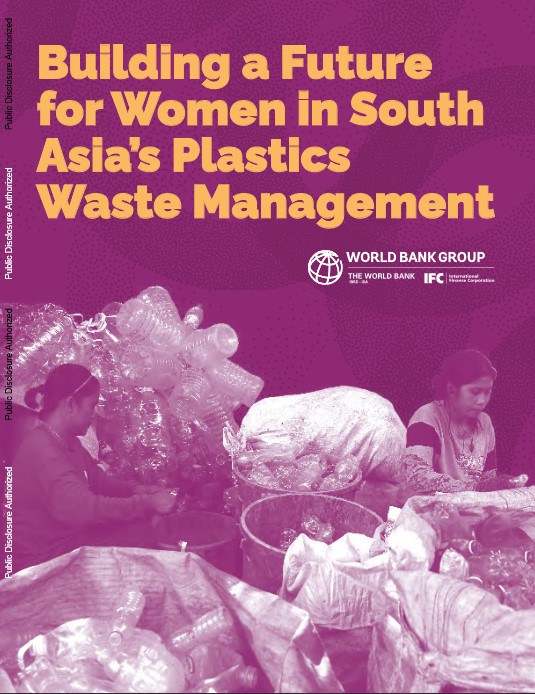
Building a Future for Women in South Asia’s Plastics Waste Management
This report examines the role of women in South Asia’s plastic waste management systems and the challenges they face, and provides recommendations for collaborative action to improve and safeguard women’s livelihoods in the sector.
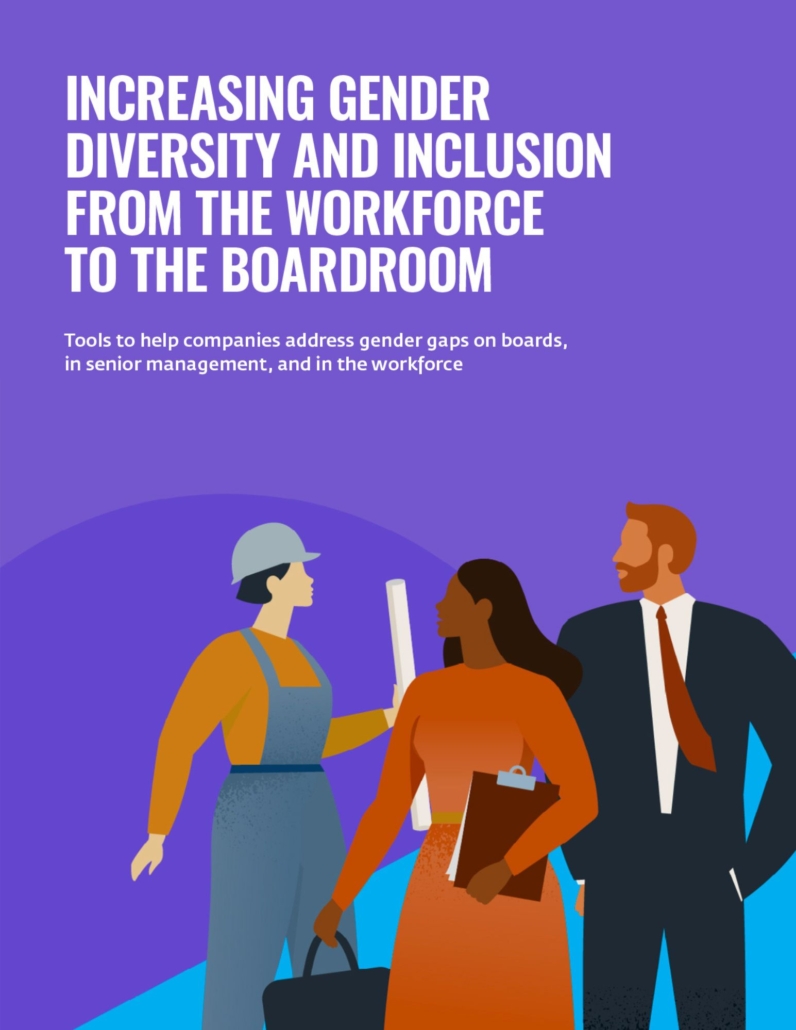
IFC Gender and Infrastructure Toolkit
A comprehensive suite of resources to empower companies to address gender inequality in the workforce, supply chain, and community activities.✅ Tool Suites: Practical tools and guidance on project planning, recruitment and more ✅ Business Cases: Insights from companies who’ve implement gender-smart practices ✅ Interactive Toolkit Builder: Create a customized action-plan for your company
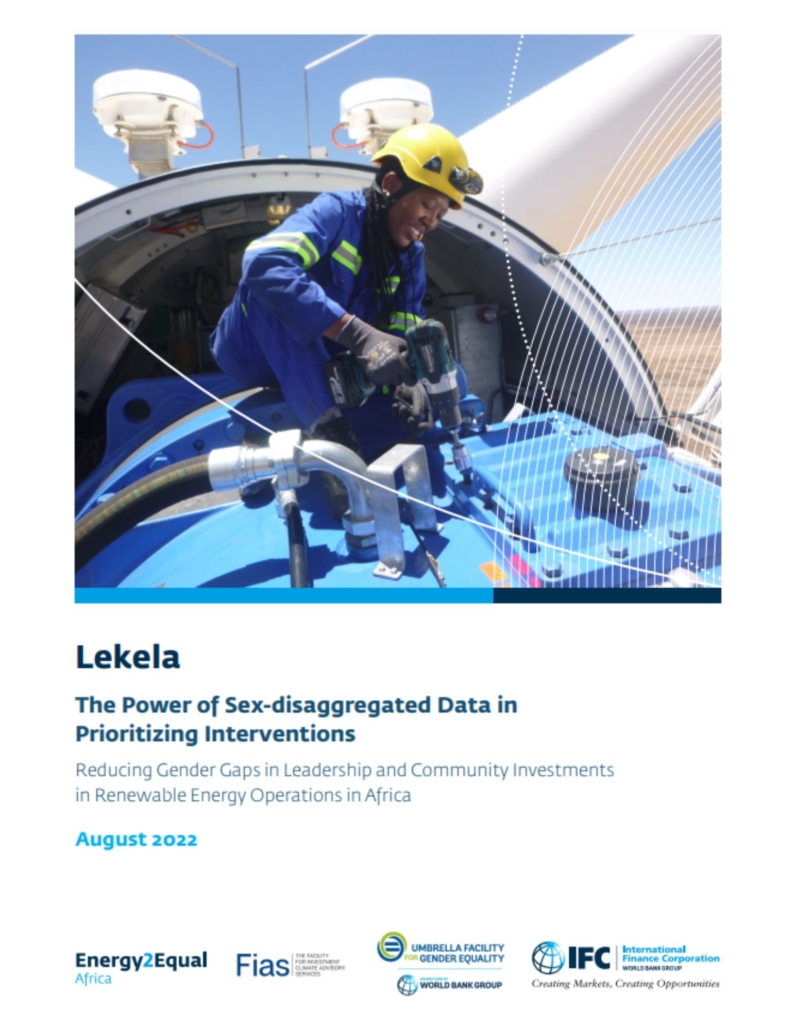
Lekela – The Power of Sex-disaggregated Data in Prioritizing Interventions
This company insights report is part of a series of short studies highlighting successful gender equality approaches taken by companies in the E2E program as they enhance their recruitment, retention, and promotion of women.
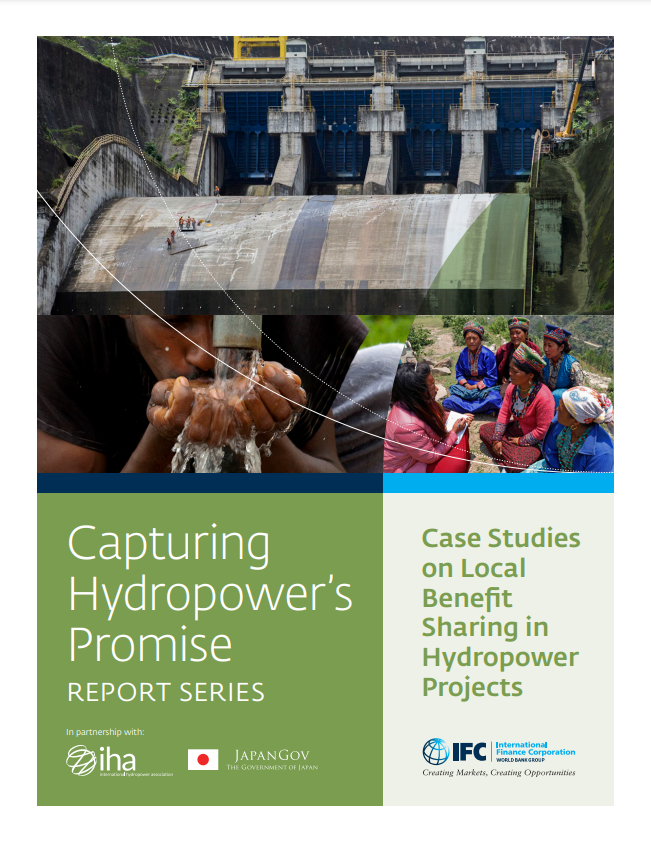
Capturing Hydropower’s Promise: Report Series
The series Capturing Hydropower’s Promise features suggested approaches on implementing local benefit sharing in hydropower projects, along with good practice examples.
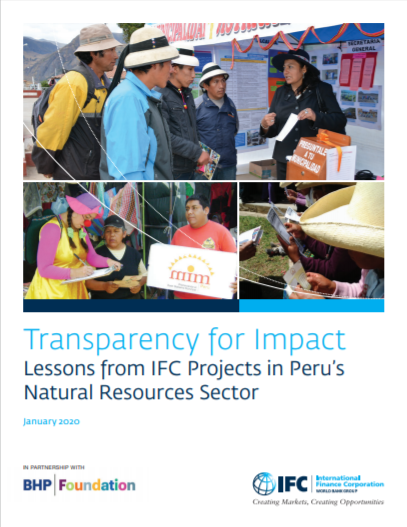
Transparency for Impact: Lessons from IFC Projects in Peru’s Natural Resources Sector
This document is part of a series of knowledge products by IFC’s From Disclosure to Development program. Two other publications in the series are Unlocking Data Innovation for Social License in Natural Resources and Natural Resource Data: Challenges and Opportunities.
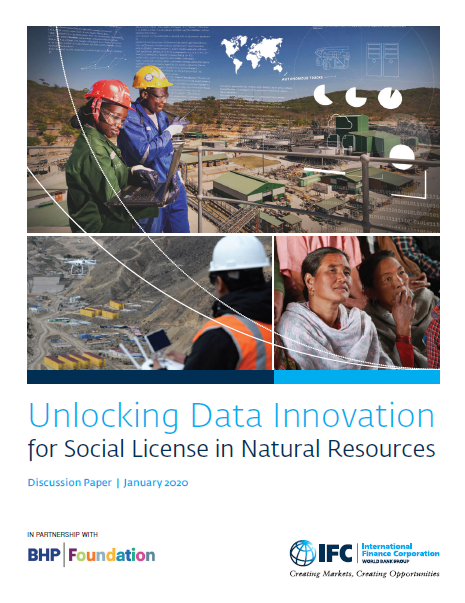
Unlocking Data Innovation for Social License in Natural Resources
This report describes how companies can use new data tools, approaches, and techniques to generate and sustain social license in communities.
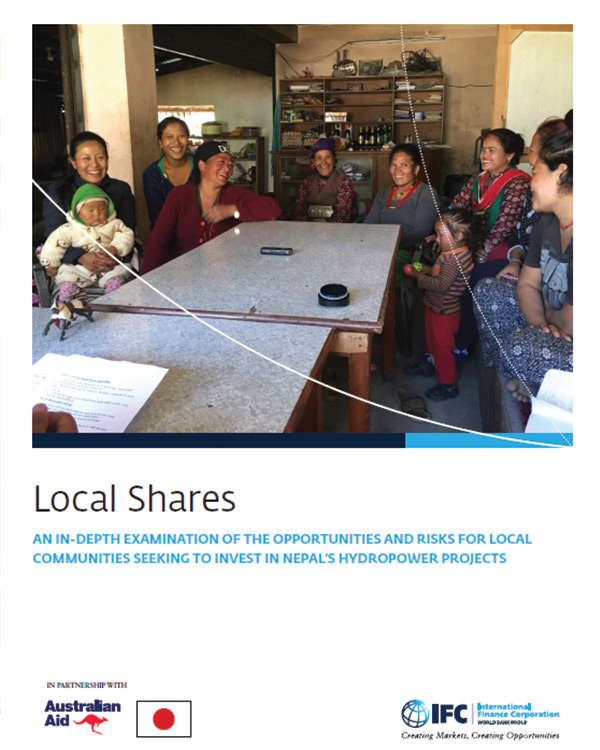
Local Shares: An In-depth Examination of the Opportunities and Risks for Local Communities Seeking to Invest in Nepal’s Hydropower Projects
Nepal is leading the way in benefit sharing with its Local Shares phenomenon that sees up to 10% of shares in hydropower developments set aside for purchase by people in affected communities.
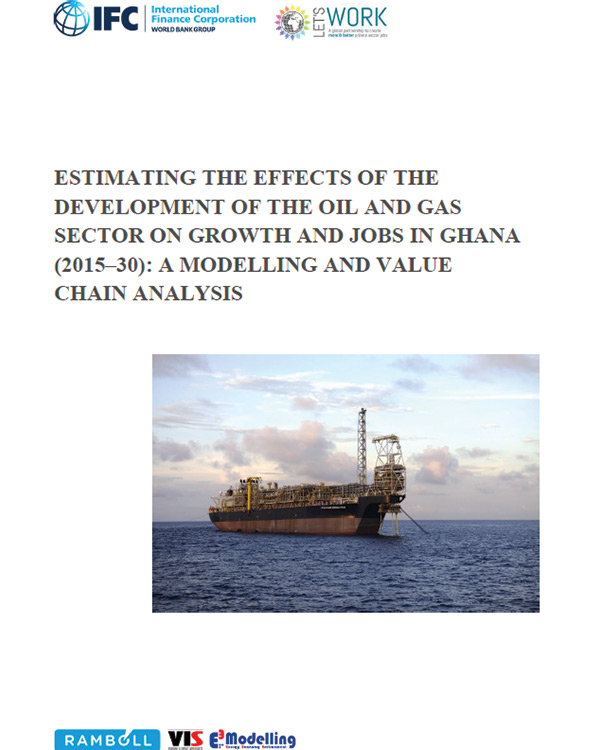
Estimating the Effects of the Development of the Oil and Gas Sector on Growth and Jobs in Ghana (2015-30): A Modelling and Value Chain Analysis
Recent oil and gas discoveries in Ghana present a unique opportunity to boost economic growth and increase the prosperity of its people.
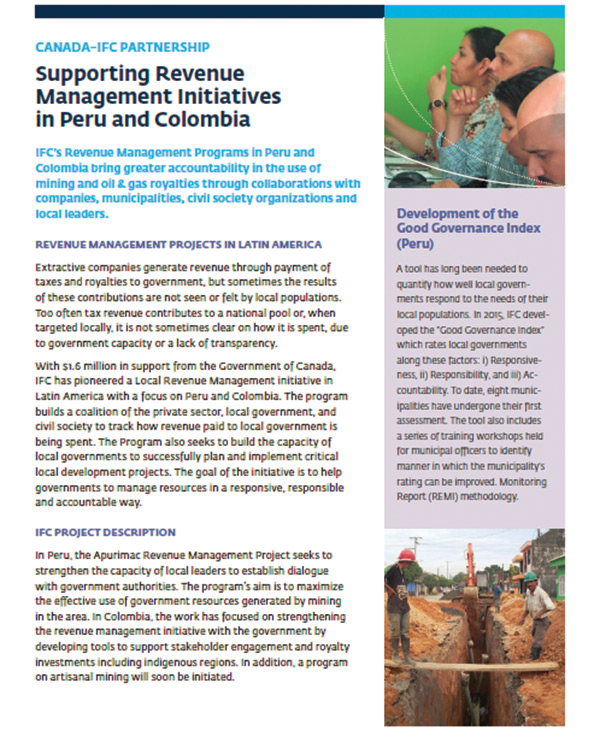
Supporting Revenue Management Initiatives in Peru and Colombia
IFC’s Revenue Management Programs in Peru and Colombia bring greater accountability in the use of mining and oil & gas royalties through collaborations with companies, municipalities, civil society organizations and local leaders.
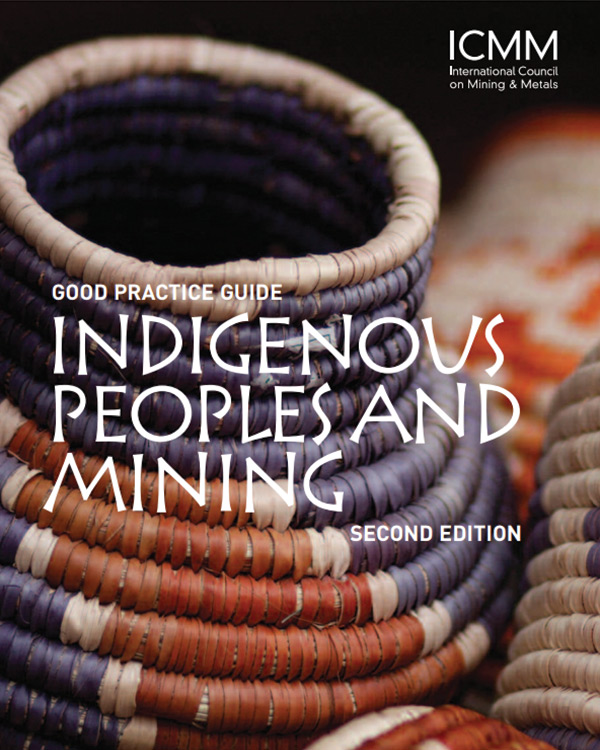
Indigenous Peoples and Mining Good Practice Guide
This guide is primarily aimed at providing guidance to companies on good practice where mining-related activities occur on or near traditional indigenous land and territory.
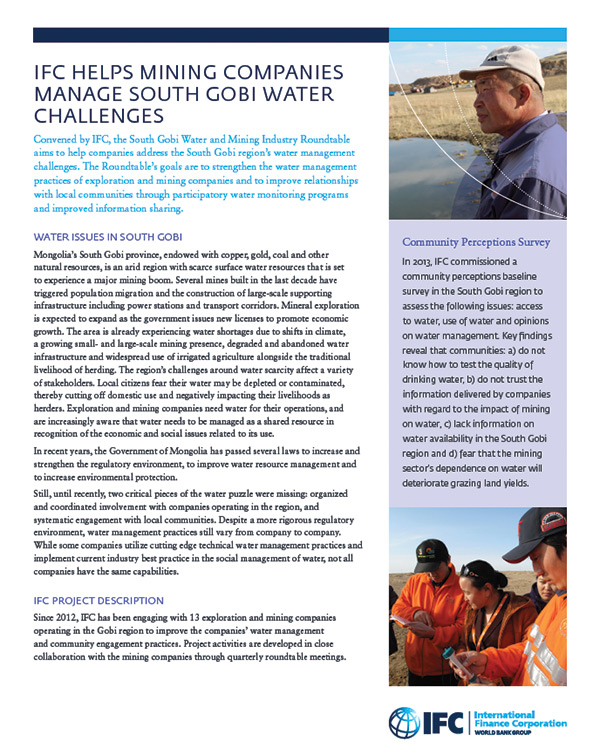
Water and Mining in Mongolia’s South Gobi Region
South Gobi Water and Mining Industry Roundtable About the Program Mongolia’s mining sector is a critical source of investment, accounting for nearly 40 per cent of government revenue, and local economic activity – and a key water user. The extraction, processing, and transportation of mineral resources could potentially bring significant changes to pastoral landscapes and […]
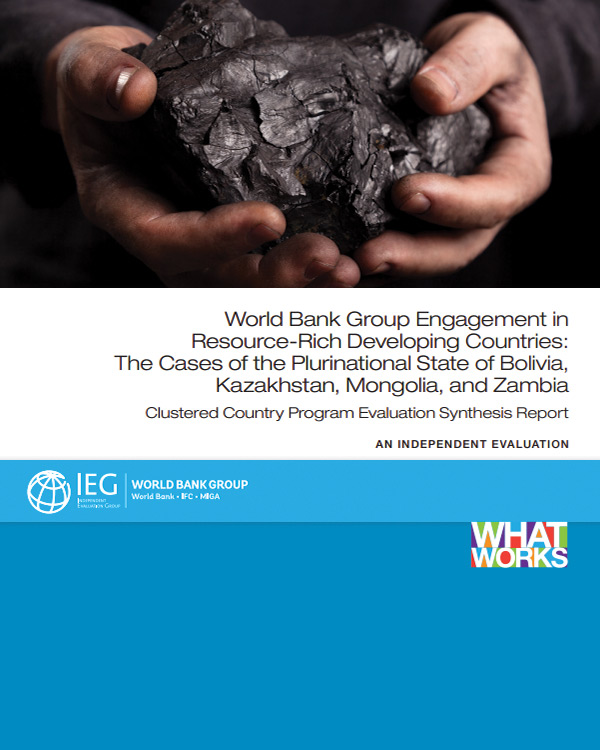
WBG Engagement in Resource-Rich Developing Countries: The Cases of the Plurinational State of Bolivia, Kazakhstan, Mongolia, and Zambia
There is strong learning potential in looking across a group of countries that have one common characteristic.
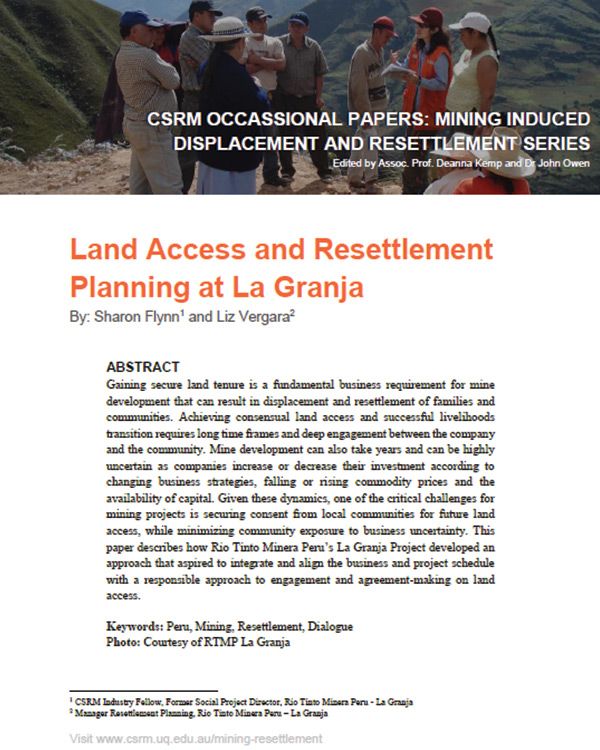
Land Access and Resettlement Planning at la Granja
Gaining secure land tenure is a fundamental business requirement for mine development that can result in displacement and resettlement of families and communities.
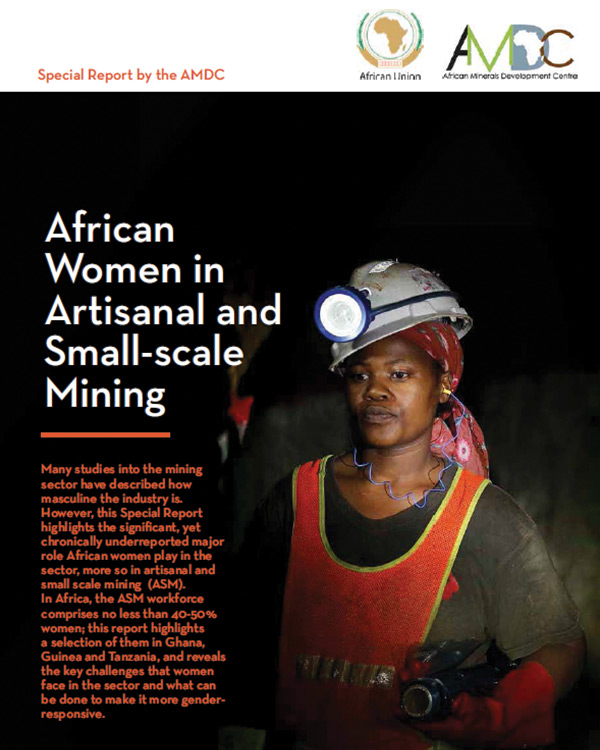
African Woman in Artisanal and Small Scale Mining
Many studies into the mining sector have described how masculine the industry is.
‘What is legal?’ Formalising artisanal and small scale mining in Colombia
Colombia’s mining sector is characterised by widespread informality. A recent census revealed that 72 percent of all mining operations in Colombia are classed as ‘artisanal and small-scale mining’ (ASM), and 63 percent are ‘informal,’ lacking a legal mining concession or title.
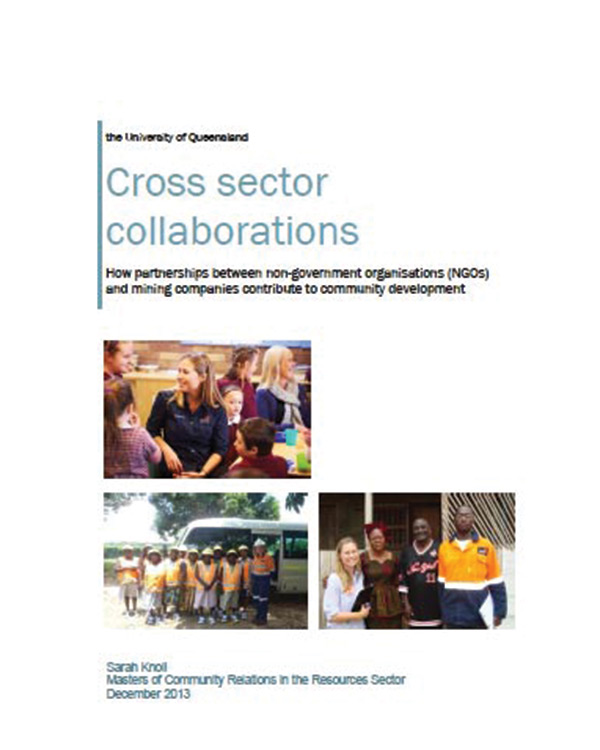
How Partnerships between Non-Government Organizations (NGOs) and Mining Companies Contribute to Community Development
Mining companies and non-governmental organisations (NGOs) are increasingly called to collaborate in the community development space.
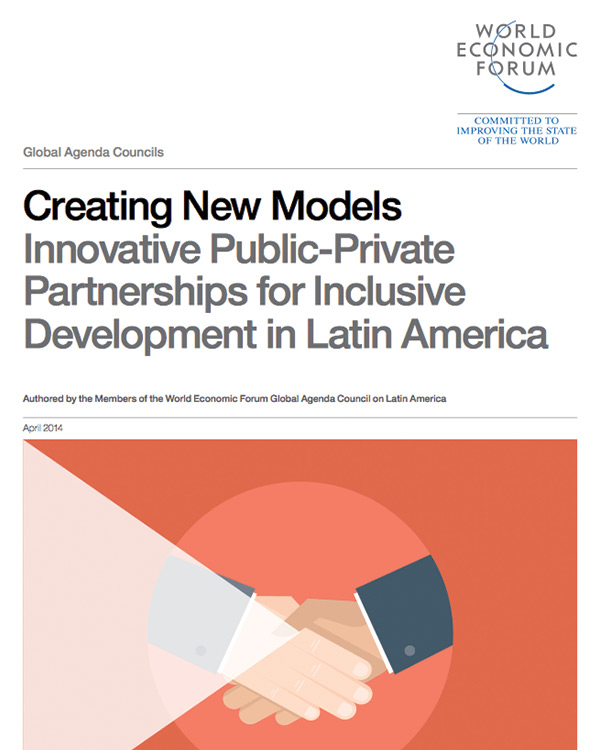
Creating New Models: Innovative Public-Private Partnerships for Inclusive Development in Latin America
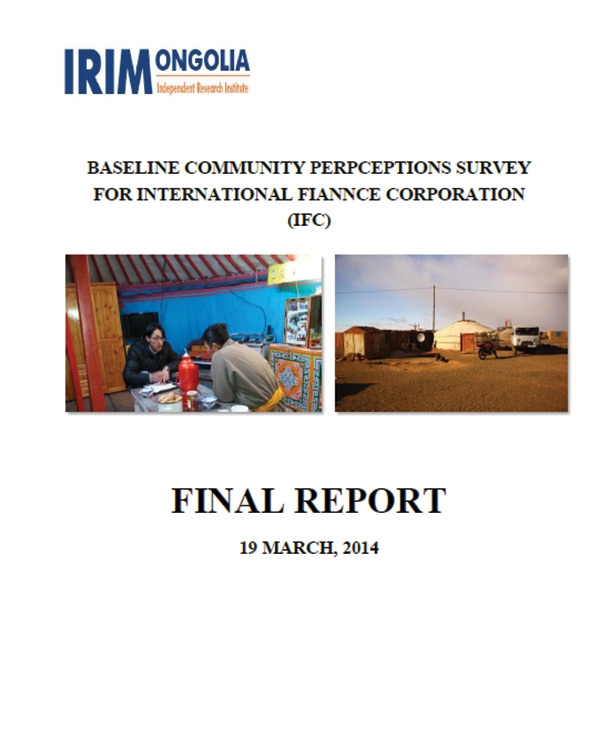
Baseline Community Perceptions Survey for International Finance Corporation – Final Report
In 2013, IFC commissioned a community perceptions baseline survey in the South Gobi region of Mongolia to assess the following issues: access to water, use of water and opinions on water management.
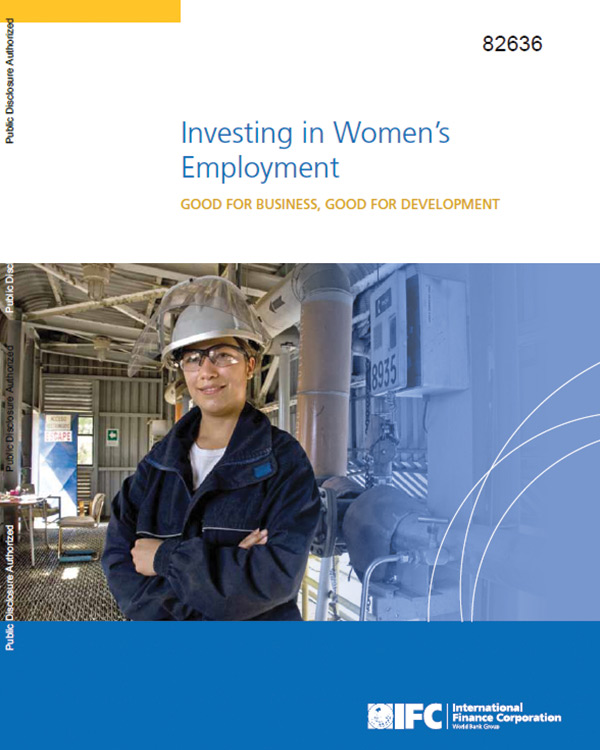
Investing in Women’s Employment
Economic growth is more robust and sustainable when women and men alike participate fully in the labor market.
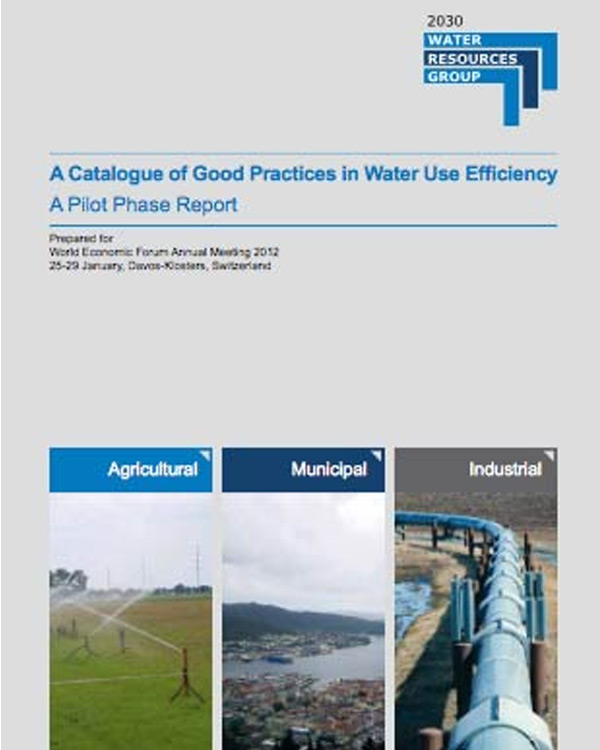
A Catalogue of Good Practices in Water Use Efficiency
In this pilot phase, WRG has worked with three partner governments – Jordan, the state of Karnataka and South Africa – to identify three priority levers of action in each government’s water use transformation space, with each lever corresponding to ones in WRG’s Charting Our Water Future report.
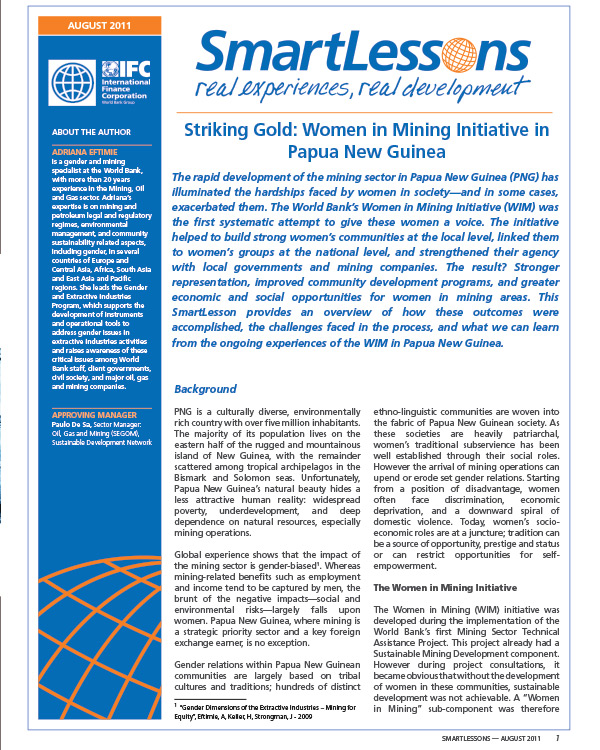
Striking Gold: Women in Mining Initiative in Papua New Guinea
The rapid development of the mining sector in Papua New Guinea (PNG) has illuminated the hardships faced by women in society, and in some cases, exacerbated them.
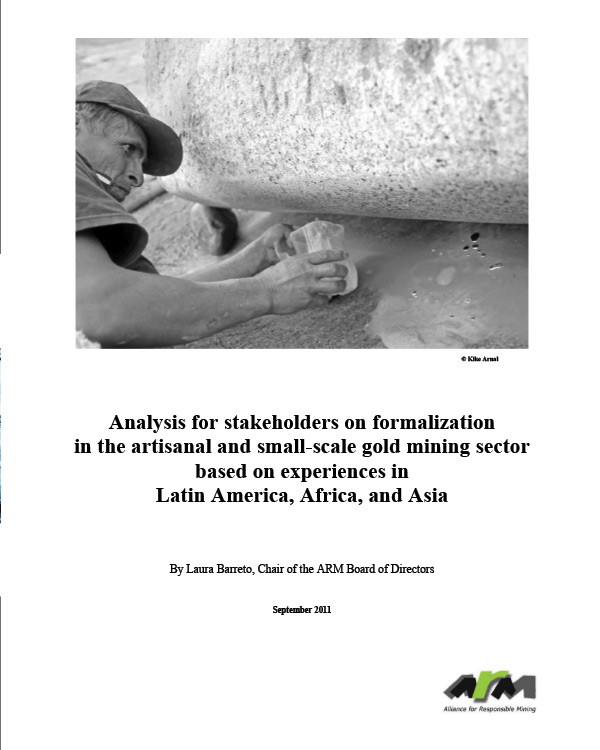
Analysis for stakeholders on formalization in the artisanal and small-scale gold mining sector based on experiences in Latin America, Africa, and Asia
This document seeks to generate awareness and provide guidelines to policymakers and other interested stakeholders in the formalization of this sub-sector of the mining economy.
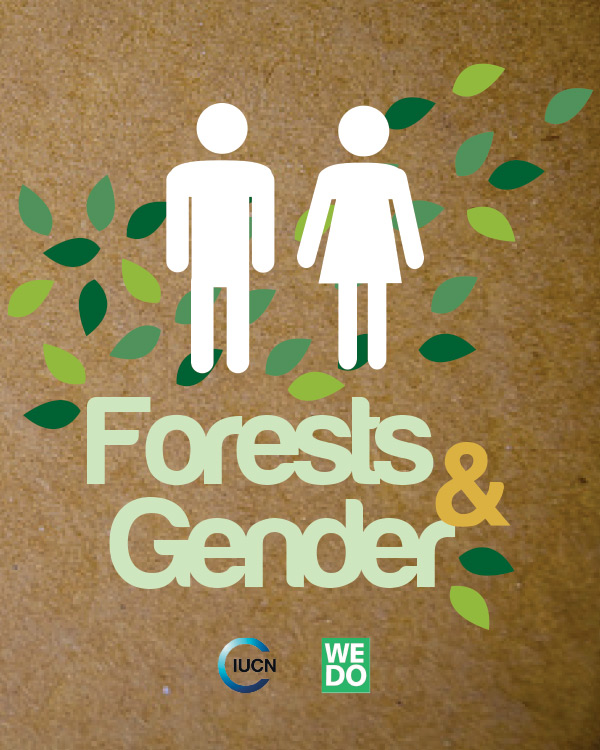
Forests and Gender
The primary objective of IUCN’s publication entitled “Forest and Gender” is to emphasize the importance of integrating gender equality principles in forest conservation and sustainability.
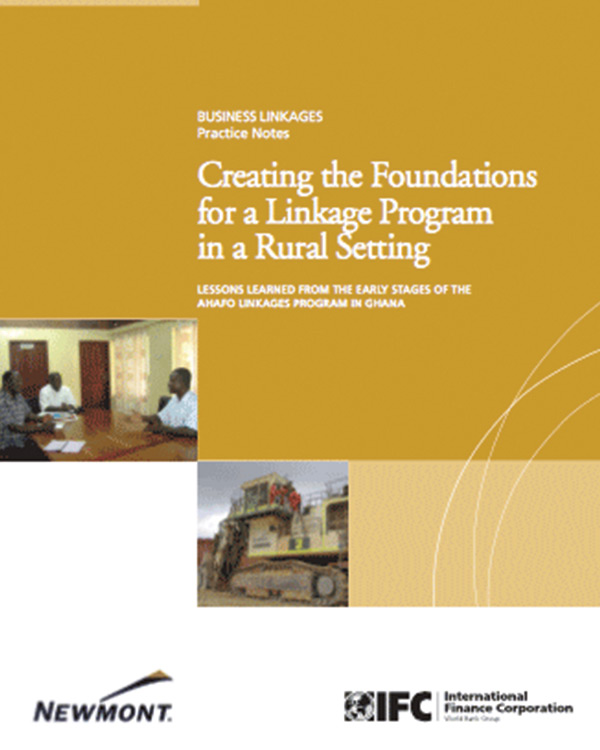
Creating the Foundations for a Linkage Program in a Rural Setting
This Practice Note focuses on the early stages of the Ahafo Linkages Program by capturing important early lessons and providing broad guidance on how to create and run a unit dedicated to local procurement within a company’s supply chain department.
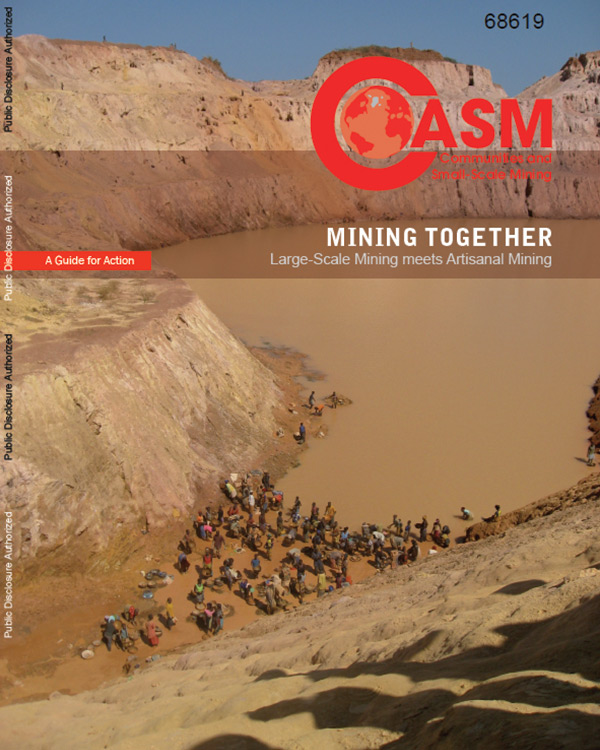
Mining Together: Large-Scale Mining meets Artisanal Mining
This guide, then, represents a step in the right direction to start transforming the relationship between large-scale and artisanal miners through win-win solutions that emerge out of the genuine interaction and dialogue of all stakeholders involved: governments, companies, communities, miners and development organizations.
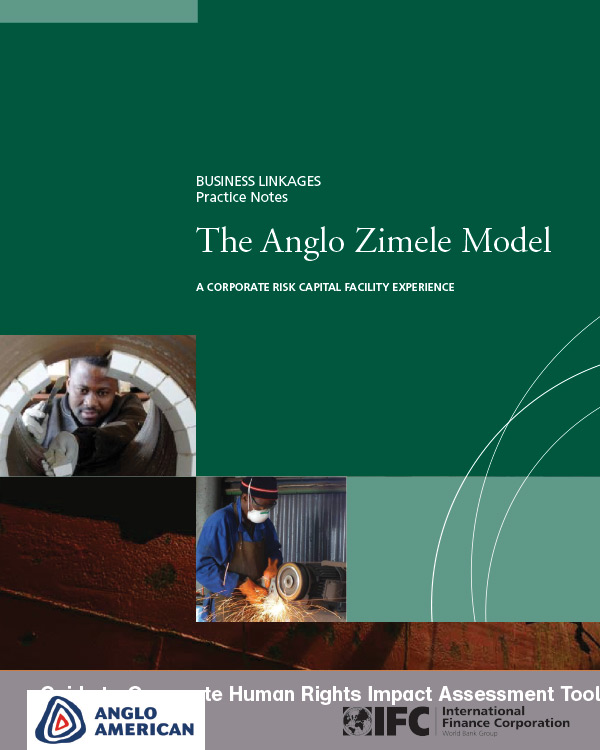
The Anglo Zimele Model
The focus of this document is to articulate in detail the process, key components, and success factors associated with the Anglo Zimele model, the enterprise development fund established by Anglo American to empower black entrepreneurs through the creation and transformation of small and medium enterprises (SMEs) in South Africa.
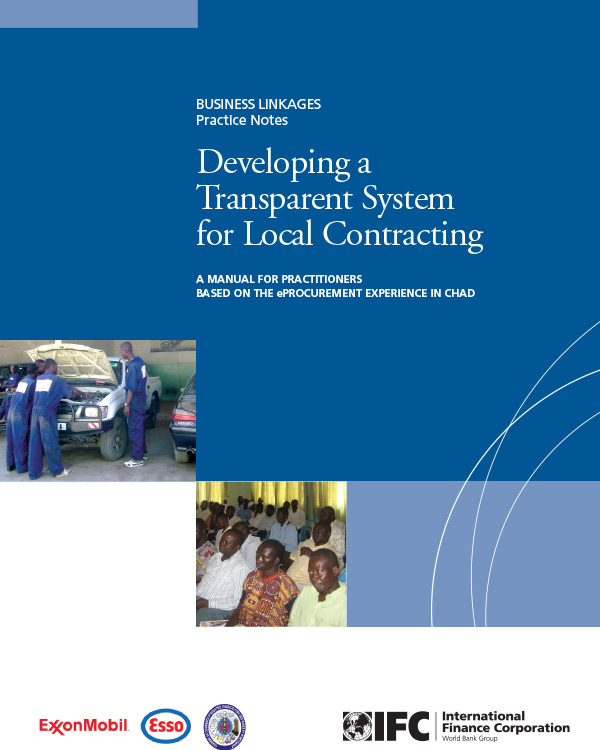
Developing a Transparent System for Local Contracting: A manual for practitioners based on the eProcurement Experience in Chad
This manual provides a step-by-step guide on how to enable local small and medium enterprises (SMEs) in emerging economies to get access to procurement opportunities with large companies through a transparent system for local contracting.
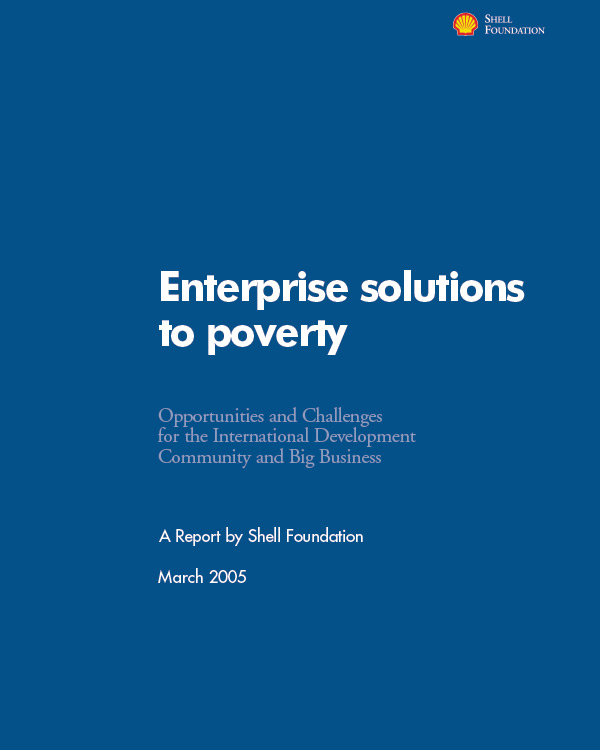
Enterprise Solutions for Poverty: Opportunities and Challenges for the International Development Community and Big Business
This paper has two objectives. The first is to introduce the Shell Foundation and its way of working. The second is to offer up insights drawn from our experience as a contribution to the wider debate on how the private sector and the International Development Community (IDC) can most effectively catalyse equitable, self-sustaining development in poor countries.
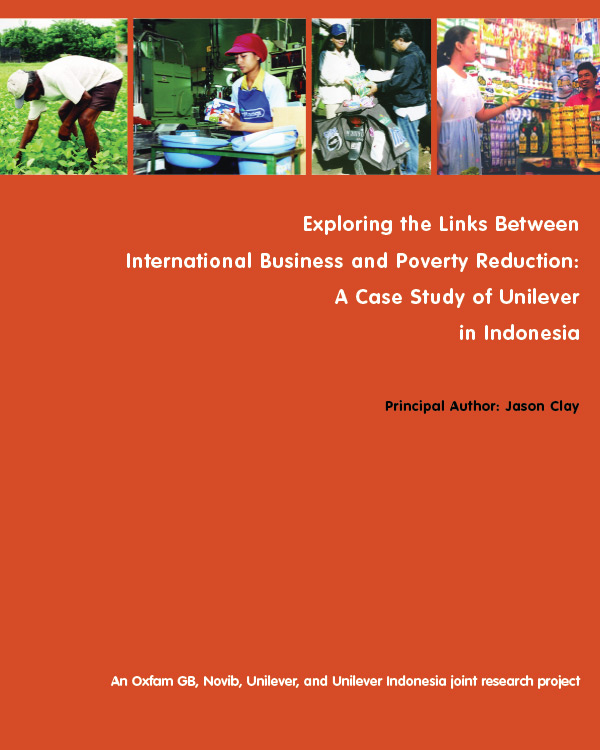
Exploring the Links between International Business and Poverty Reduction: A Case Study of Unilover in Indonesia
The role of big business in poverty reduction cannot be overemphasized.
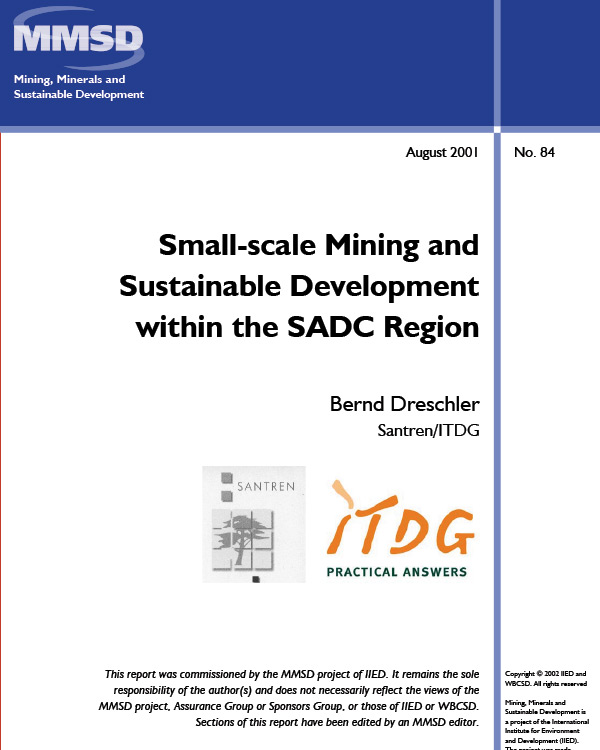
Small Scale Mining and Development within the SADC Region
A comparative analysis and overview of small scale mining in six countries in the South African Development Community